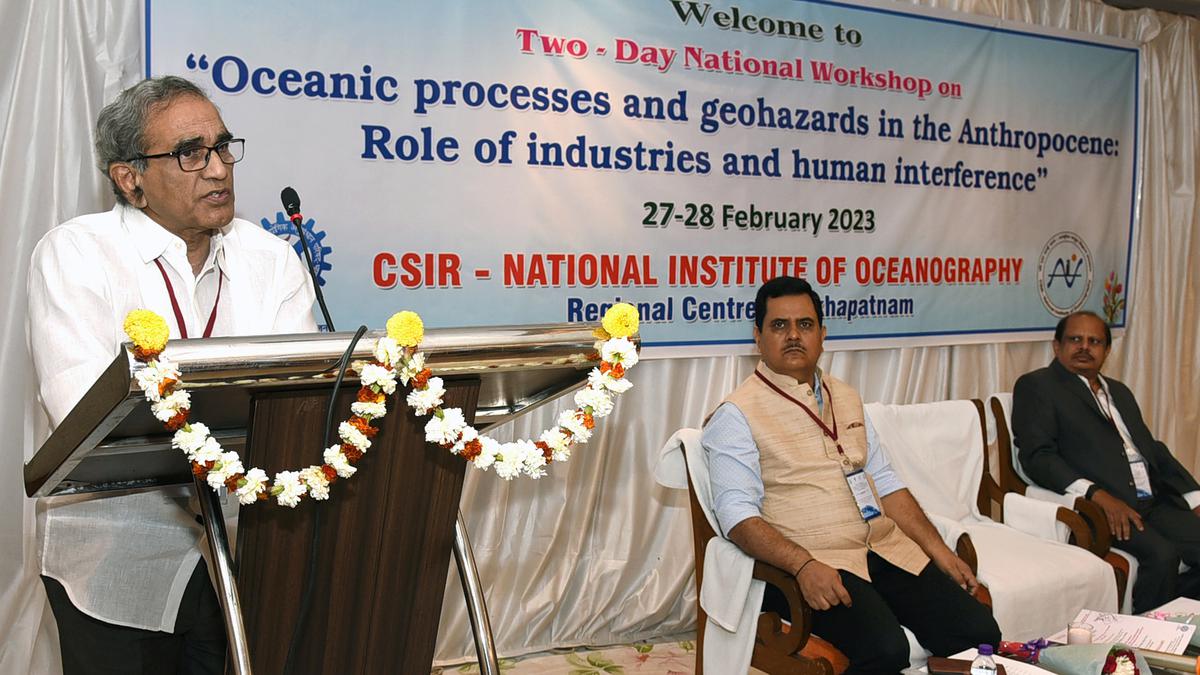
Visakhapatnam: Dependency on seafood is growing as the food on land getting polluted, says former AU professor
The Hindu
‘Coastal hazards increasing day-by-day due to changes in the natural phenomena, decrease in the number of rainy days, increase in intensity of rains, changes in distribution of rainfall and climate change’
The dependency on seafood for food security has been growing as the food on land is getting polluted due to various reasons. Though seafood is also getting polluted, the extent of pollution is comparatively lesser, according to P. Rajendra Prasad, former Professor of Andhra University, and Sir Arthur Cotton Geospatial Chair.
Participating as the chief guest at the inaugural session of a two-day CSIR-National Institute of Oceanography (NIO) workshop on “The role of industries and human activities on coastal ocean processes and geohazards”, here, on Monday, Prof. Rajendra Prasad said that coastal hazards were increasing day-by-day due to changes in the natural phenomena, decrease in the number of rainy days, increase in intensity of rains, changes in distribution of rainfall, climate change and associated factors. Sewage from municipalities was being drained into the sea, making the coastline vulnerable. The development activities along the coast were impacting the coastline.
He underlined the need for interdisciplinary research between educational institutions and research organisations. The scientific community should come out with strategies to prevent coastal pollution and erosion and convince the governments on the need to adopt them. The resolutions adopted at the workshop should be translated into action.
NIO Director Sunil Kumar Singh spoke on the impact of climate change, global warming on marine living resources. He said that though the growth of industries was required for the development of the country, the stringent rules imposed by the Government of India, must be implemented in order to maintain the sustainability of the marine living resources.
NIO-Visakhapatnam Chief Scientist V.V.S.S. Sarma said that about 30% of the global population was dwelling along the Indian Ocean coast, where major cities and industrial activities were being rapidly developed. This resulted in polluting the air as well as coastal waters. The impact of these pollutants on the coastal ecosystem needs to be evaluated.
The outcome of the two-day national workshop is expected to bring insights on how different human activities were influencing the ecosystem and identify possible regions of geohazards in the northern Indian Ocean.
The session ended with a vote of thanks proposed by G.P.S. Murty, Scientist-in-Charge, CSIR-NIO, Visakhapatnam.

 Run 3 Space | Play Space Running Game
Run 3 Space | Play Space Running Game
 Traffic Jam 3D | Online Racing Game
Traffic Jam 3D | Online Racing Game
 Duck Hunt | Play Old Classic Game
Duck Hunt | Play Old Classic Game

















